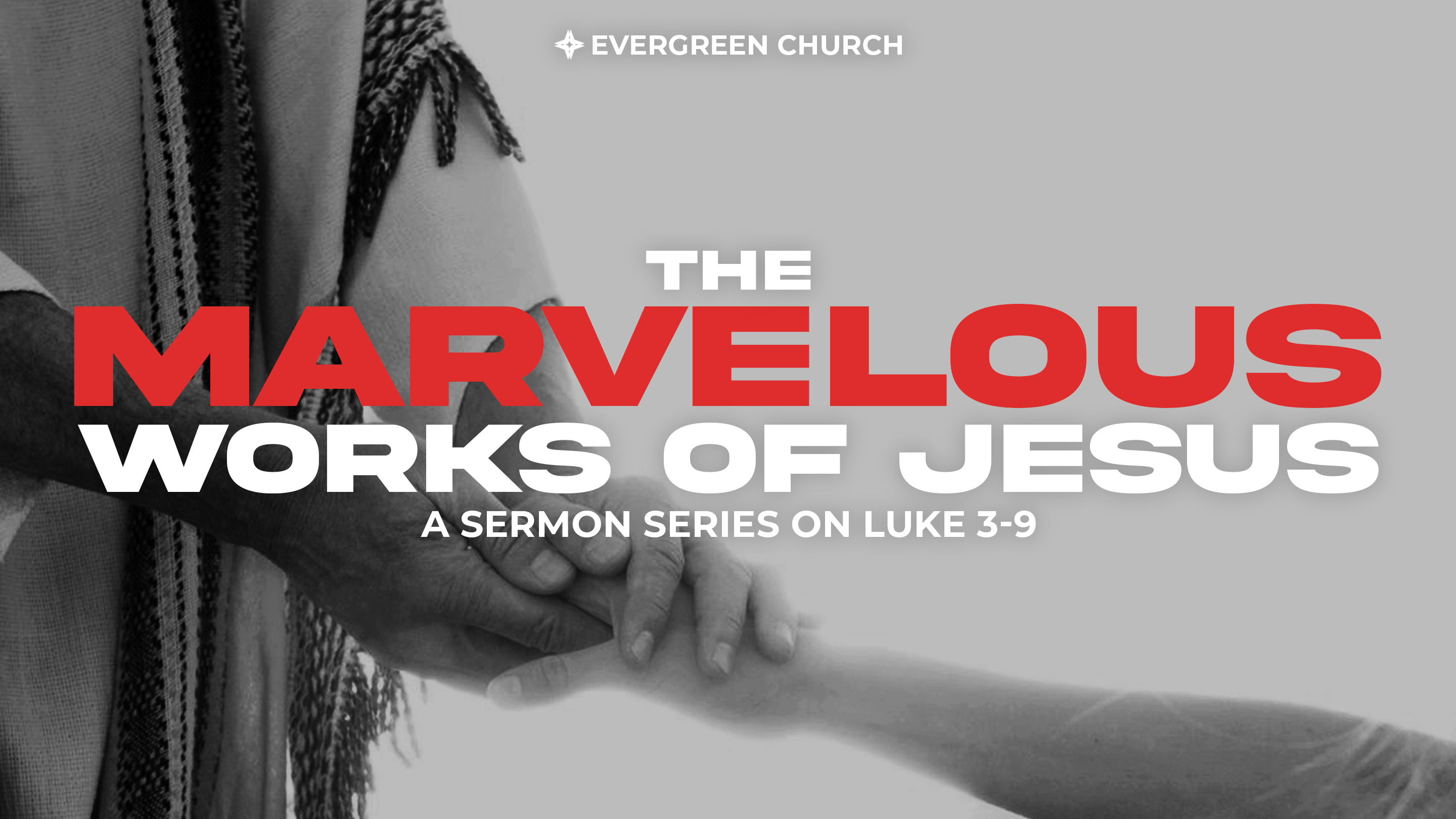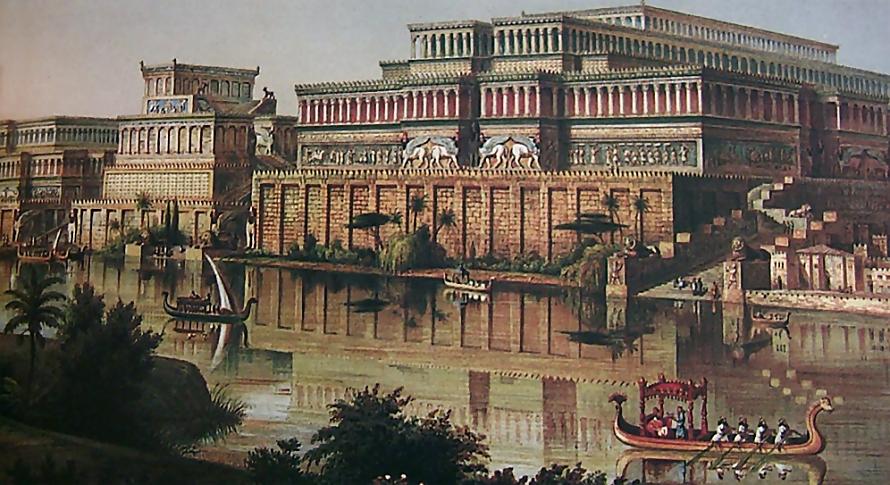
[Listen to an audio version here]
In a way, the whole world recognizes the need for repentance. There is no other time of the year at which this message is better recognized than now. That’s what New Year’s resolutions are all about. We need to change. We have been going one way, and now we need to go another.
One interesting thing about the New Year is that it is not on our timetable. The New Year calls for new patterns of life and new goals. It comes whether we like it or not. It is forced upon us, and we have to consider it. What am I going to do with this new year? Am I going to continue in the same old ways? Or, am I going to make something different of it? What will it look like?
That’s what happened to the people of Jesus’ times. They did not choose the time of the coming of John the Baptist or of Jesus. That was God’s timeline. When this time came, it demanded a change. It demanded repentance. That’s what we’ll consider in this passage. In order to understand the call to repentance, we need to look at the messenger, the message, and the Messiah.
The Messenger
The messenger was John the Baptist. The first thing we note about John is that John came from a miraculous birth. We are not going to look at every detail of the book of Luke, but it’s important to recognize that at this point in Luke’s telling of Jesus’ story, John was already set apart for the work of God. Before an angel announced the birth of Jesus, he announced the birth of John to the priest Zechariah. Here’s what he said:
He will be a joy and delight to you, and many will rejoice because of his birth, for he will be great in the sight of the Lord. He is never to take wine or other fermented drink, and he will be filled with the Holy Spirit even before he is born. He will bring back many of the people of Israel to the Lord their God. And he will go on before the Lord, in the spirit and power of Elijah, to turn the hearts of the parents to their children and the disobedient to the wisdom of the righteous—to make ready a people prepared for the Lord (Luke 1:14–17).
Zechariah and Elizabeth were past the age of bearing children. However, they were not outside the possibilities of God’s power. God gave them a son in a miraculous way to show the extraordinary nature of this child.
John was going to be God’s special messenger to call people back to the Lord. He was preparing the way for the Lord, as we shall see.
John came through God’s command. Even though John was marked out from birth, he did not go out until God told him to. We know the exact time when John came. It was in the 15th year of the reign of Tiberias Caesar. This was in A.D. 26. Luke emphasizes that this is not just imagination or a story. It is real history. It is verifiable. At that time, “the word of God came to John son of Zechariah in the wilderness” (Luke 3:2). When God gave the command, he knew it was his time. He went and preached a baptism of repentance for the forgiveness of sins (Luke 3:3).
John came with great boldness. Because he knew his commission was from God, he spoke with great boldness. “John said to the crowds coming out to be baptized by him, ‘You brood of vipers! Who warned you to flee from the coming wrath?'” (Luke 3:7). John saw that the wrath of God was coming on his generation, and he knew it was urgent to warn them. So, he spoke boldly.
In one instance, John rebuked even the ruler Herod because of his adulterous ways. That’s what ultimately landed John in prison. “When John rebuked Herod the tetrarch because of his marriage to Herodias, his brother’s wife, and all the other evil things he had done, Herod added this to them all: He locked John up in prison” (Luke 3:19–20). John did not let the threat of harm keep him from calling anyone, even the most powerful, to repentance. John came with great boldness because he feared God more than man.
John came to prepare for Jesus. John was not there for himself. The people of that time were looking for the Messiah. The Messiah means “the anointed one.” The idea is that it is someone sent and anointed by God to bring salvation. John was an anointed one. He was not the anointed one.
Here’s what happened when the people asked if John was the Messiah. “I baptize you with water. But one who is more powerful than I will come, the straps of whose sandals I am not worthy to untie. He will baptize you with the Holy Spirit and fire. His winnowing fork is in his hand to clear his threshing floor and to gather the wheat into his barn, but he will burn up the chaff with unquenchable fire” (Luke 3:16–17). John was powerful, but he was just the messenger sent to prepare the way for Jesus. Consequently, he knew that the day would come when he would step out of the way in order to let the Messiah come to the forefront.
Now, before we consider what that day in which the Messiah showed up was like, let’s look at John’s message because that is what is highlighted here and because it is very instructive for us.
The Message
The message of John is a message of repentance. What does this mean?
Repentance demands a mindset change. The word repentance in the original language really does not mean saying you are sorry. This is a fruit of repentance, but it is not what repentance is all about. The word repentance could be literally translated “a change of mind” or “a mindset change.”
The point is that real change begins with how we think about things. It begins with the stories that we tell ourselves. What we need is a change in our stories and thinking. Real and lasting change begins with the way we think. That’s the meaning of the word repentance. That’s what John preached.
One of the stories that they were telling themselves was that they were children of Abraham, and so they were fine. John said, no. A real child of Abraham is one who lives like him, not just one who is descended from him. Abraham’s significance is first and foremost in his faith working through love and not his biology. It’s easy to put our confidence in past religious experiences or privileges, but what God wants is real righteousness and justice.
Repentance demands adjustments. A mindset shift demands adjustments on our part. We may have been thinking one way before, but when God shows up, things will have to be adjusted. That’s why Luke reminded us of the fact that God had already told them through the prophet Isaiah that a new messenger would come. Isaiah told them that the coming of the Messiah would demand adjustments. Listen to these words:
A voice of one calling in the wilderness,
“Prepare the way for the Lord,
make straight paths for him.
Every valley shall be filled in,
every mountain and hill made low.
The crooked roads shall become straight,
the rough ways smooth.
And all people will see God’s salvation” (Luke 3:4–6).
This citation from Isaiah 40 used the image of making a road in the desert. Valleys would have to be raised. Mountains would have to be leveled. Crooked roads would have to be adjusted.
God uses this image to tell us about the adjustments that we have to make when He comes. We may have had some things on our agenda, but we may have to add others or take away others. Things will have to change. Are we ready for the types of adjustments the Lord’s coming demands? That was the message of John.
Repentance demands fruit. The change in our hearts and minds demands a change in our actions. “Produce fruit in keeping with repentance” (Luke 3:8). This means that our actions will have to change. God tells us in this passage that various groups came to him and asked how they should change.
“What should we do then?” the crowd asked.
11 John answered, “Anyone who has two shirts should share with the one who has none, and anyone who has food should do the same.”
12 Even tax collectors came to be baptized. “Teacher,” they asked, “what should we do?”
13 “Don’t collect any more than you are required to,” he told them.
14 Then some soldiers asked him, “And what should we do?”
He replied, “Don’t extort money and don’t accuse people falsely—be content with your pay” (Luke 3:10–14).
What is interesting is that the change centers in their relationships with people. Our love for God is demonstrated in just relationships with other people. Our tendency in our society is to basically focus on our own things and let others go their way. Repentance demands a concern for our neighbors, our communities, and the people around us. We should be content with what we have and be ready to share our time, talents, and efforts for the community. That’s what John is saying. That’s how we begin to live in conformity with the community that the Messiah will bring.
Now, there is an important part of this message that we need to see here. If we do not repent, then it is not okay. The wrath of God is coming, and the kingdom of God is coming. Adjustments are going to have to be made, and whoa to us, if we refuse to make those adjustments. If we refuse to break with our old ways, then the coming of the kingdom will break us.
On the flip side, if we repent, we should be encouraged. John washed people with water when they agreed to his message. This showed that their sins were forgiven. Confessing their sins, they were washed to show that God forgave them and that they were welcome in the coming kingdom of the Messiah.
And then one day, something rather astonishing happened.
The Messiah
John had been talking for a long time about the coming Messiah, and one day, he showed up. Now, what do you think that he would do? Do you think he would now take over and start leading the people? Do you think that he would stand up and speak?
No. He did something rather remarkable. He told John to baptize him. He received the baptism of repentance for the forgiveness of sins. This is remarkable because he did not have any sin. As John said, Jesus is the spotless lamb of God who takes away the sin of the world. He did not need to repent because He was the King bringing the new order of the kingdom into the world. It was His reign and rule. So, it’s exceedingly strange that he would come and be baptized. It’s a really shocking thing.
But it’s a marvelous thing. How do we know when we repent that our efforts will bear any fruit? Because God says, “I am with you.” That’s what happening here. Jesus comes to his repenting people, and says, I am totally with you. I enter the waters of baptism with you. I am intimately united to you. I will bring you to a new place and empower you to make the adjustments. I don’t condemn you, Jesus would say. I am here to help you. Jesus’ baptism is a marvelous confirmation of God’s acceptance of all who repent and believe.
And there’s more. As Jesus entered the water, He was praying. He was speaking to His Father in heaven. Then, the Spirit came down in bodily form. The Father spoke in audible form: “You are my Son, whom I love; with you I am well pleased” (Luke 3:22). Here was the presence of the Father, Son, and Holy Spirit. It is the clear revelation that baptism is in the name of the Father, Son, and Holy Spirit. It is God revealed as Triune, as the great Three in One. It is God as Triune revealed in solidarity with us. God is with us.
How will we make the change? How will we make the adjustments? How will we bear the fruit of repentance? God is with us.
Conclusion
What would happen if Jesus came to your house today and said, I am going to be a part of your life this week and just do life with you? What sort of adjustments would you want to make? What things would you not want to do? How would your priorities change? What would be important to you?
That’s how we should think of the coming of the kingdom. Jesus is coming to be with us in the midst of our homes and lives. Repentance is demanded. Priorities will change. Adjustments will need to be made. Actions will have to occur that have not occurred in a long time.
It would be a very humbling experience but a healthy one. It would hurt, but it would heal. And, Jesus, seeing our heart to repent would say, “Don’t be afraid. Remember. I went down into the waters of the baptism of repentance just like you. I’m with you all the way.” Amen.
Benediction: This is a great time of year to think about repentance. What shifts need to occur in our mindset? What do we need to leave behind? What do we need to start doing and thinking? What needs to be adjusted? Jesus has come into the world. His kingdom demands a change on our part.
But remember also your own baptism. You are baptized into the name of the Father, Son, and Holy Spirit. Jesus was baptized like you. This assures us that wherever we go and whatever God calls us to this week, He will be with us all the way. So, go out to serve the world in the assurance of the blessing of the Father, Son, and Holy Spirit. Amen.


